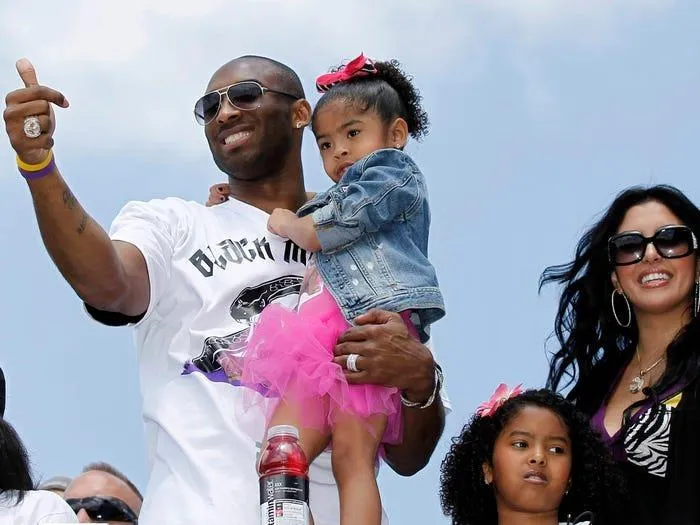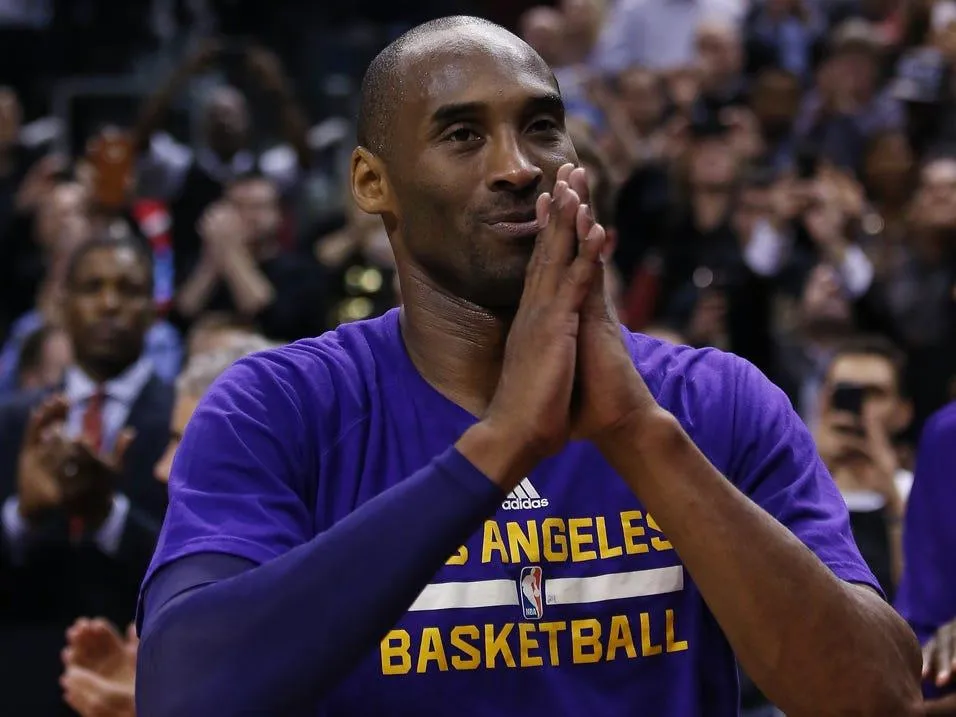Kobe Bryant fought anxiety and obesity with a children’s podcast called ‘The Punies’ and a campaign to keep kids in sports
- NBA star Kobe Bryant died Sunday, January 26, in a helicopter crash. He was 41 years old.
- The sports legend was a vocal advocate for mental health awareness, spoke about his own fears and insecurities, and inspired all athletes, from schoolkids to pros in basketball and beyond.
- He also worked to improve youth sports participation, with a campaign called “Don’t Retire, Kid” that encouraged young people to stay active.
- A leadership psychologist told Insider that Bryant was the perfect blend of mentor, encouraging competitiveness but also to acknowledge your role models and pay it forward.
Basketball legend Kobe Bryant, who died January 26 in a helicopter crash at age 41, has been memorialized for his stellar career in sports, including 5 NBA championship wins.
But his legacy also included advocacy and mentorship off the court, offering one-on-one support to teammates, advice for newer athletes, and even inspiration to athletes in other sports. His contributions took many forms, from video campaigns to articles to podcasts.
At a time when children’s lack of physical activity is reaching crisis levels, Bryant was a vocal advocate for youth sports participation, helping to launch the “Don’t Retire, Kid” campaign to fight against an epidemic of anxiety and physical inactivity pushing children away from athletics.
Bryant also tackled mental health issues, and the rising rates of anxiety, spearheading a children’s podcast called “The Punies” to share important life lessons like how to manage anger and fear of not fitting in, how to work with other people on a team, and how to learn from failure.
He also worked with Why We Rise, a campaign from the Los Angeles County Department of Mental Health, on the importance of being open about mental health and reducing the stigma of depression, anxiety and other issues.
Most kids “retire” from sports at 11, but Bryant was determined to change that
Bryant was the lead spokesperson for the Don’t Retire, Kid campaign, which he launched with the Aspen Institute in August 2019.
The campaign commissioned research that showed most US children spend just three years playing sports, and poor kids drop out of group activities even earlier — a concern as fewer and fewer kids and adults are getting enough exercise, according to government data.
Working alongside other sports stars (Wayne Gretzky, Sue Bird, Mookie Betts), Bryant advocated for giving children freedom and creativity in sports, and keeping the game fun
“Today’s kids are the least active in history and, dropping out of sports at alarming rates,” Bryant said in a 2014 interview alongside Bill Clinton.
“I think we tend to overlook the significance coaches have on children – their emotional development, their ability to imagine, dream and hope,” Bryant said in a separate interview on the initiative.
Tom Farey, leader of the Aspen Institute’s Project Play which launched the campaign, said Bryant’s “legendary competitor’s mindset” inspired young people in sports to “own their ambition.”
He encouraged his fans to open up about their insecurities, because ‘ignoring it is the worst thing we can do’
Bryant has also spoken out about the difficulties in discussing mental health. He was upfront about the importance of sharing experiences, and moving beyond the stigma of viewing mental health struggles as “weakness.”
“Ignoring it is the worst thing we can do, because then it festers,” he said in a video collaboration with Why We Rise.
His podcast, The Punies, also deals with emotional strength and discusses issues important to mental wellbeing, like relying on trusted friends for help and support.
“For younger kids, The Punies is just fun,” Bryant said, as reported by Sports Illustrated Kids. “As they get older, we hope they’ll start to understand the meanings and messages, and the show will teach them things like perseverance, commitment, hard work, compassion, and empathy. Those are things that sports naturally teach.”

A leadership psychologist said Bryant was the perfect blend, teaching kids to be competitive but also acknowledge their role models
According to leadership psychologist Ronald Riggio, Bryant’s influence was more than just drive and skill: it was his graciousness. He was not only quick to acknowledge his own role models and people he learned from, but made an effort to pay it forward by mentoring others, Riggio told Insider.
“Clearly Kobe had very, very high self-confidence, or he wouldn’t have performed at the level he did, but people can have that and realize they learned from other people,” Riggio, who previously wrote about Bryant’s retirement, said.
Riggio, an expert in sports psychology, explained that research shows the relationship between sports and leadership skills is complex. Athletics can be great opportunity for young people to learn good leadership skills, he said, but only if they have positive experiences and role models. The wrong kind of sports experience can lead to more selfish behavior, he said.
Bryant’s legacy was also complex, including a 2003 accusation of sexual assault followed him through the rest of his career, and he was fined in 2011 for using an anti-gay slur against a referee, both incidents for which he later apologized.
In spite of that, Bryant’s exceptional work ethic was uncontested, and part of his hard-earned legacy as a leader on and off the court. Bryant was legendary for early-morning practices and his relentless drive to become better.
“That behavior sets the standard, making people realize how hard he worked to make himself the player he was, and it sets a great example for other players and for kids who want to excel in athletics,” Riggio said.
Bryant was a father figure who mentored all players, including his daughter, Gigi
Riggio also noted parallels between leadership and parenting.
“Being a great leader in the sports world is like being a great parent. Parents wants what’s best for the children and want them to do better,” he said. “Leaders in sports are really concerned about the people they mentor, and Kobe was a very good mentor.”Bryant had previous acknowledged that his 13-year-old daughter, Gianna “Gigi” Bryant would carry on his legacy. Tragically, she died in the same helicopter accident.
Riggio said that relationship exemplifies Bryant as both a role model and a parent, even in his last moments.
“It’s bittersweet that he was parenting, developing other people, when he died. He was doing what he loved,” Riggio said.














